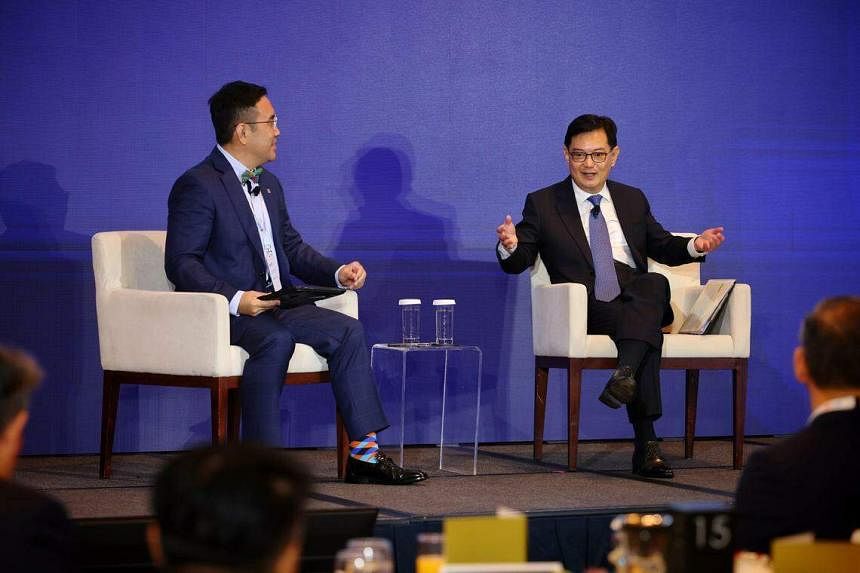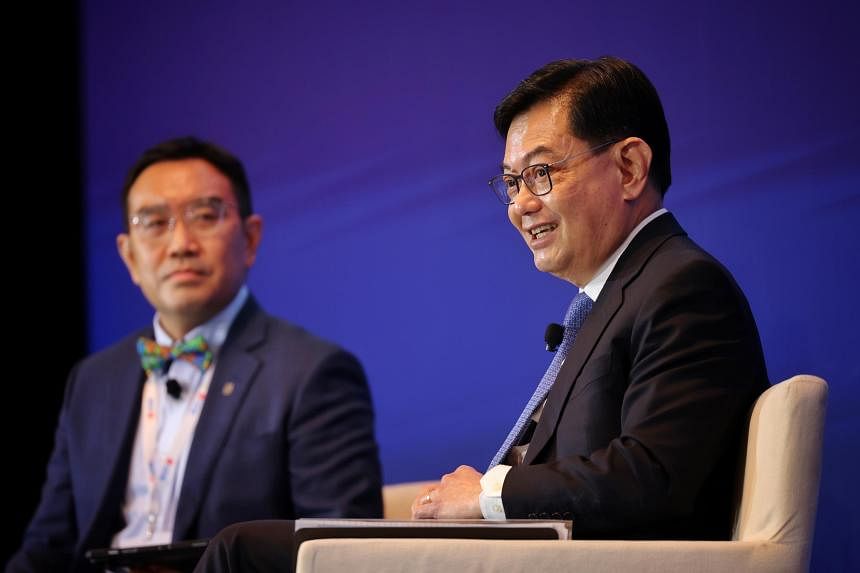SINGAPORE – Singapore firms need to build stronger supply chains as trade becomes more diversified and opportunities arise from economic shifts in China, said Deputy Prime Minister Heng Swee Keat on Feb 1.
DPM Heng noted that the pandemic has made companies more aware of potential disruptions and driven them to make contingency plans, a process that is occurring amid tensions between China and the United States.
“Instead of relying purely on one location, which is big enough that you can manufacture the entire supply chain, people are now concerned about over-dependence, and about action that will be taken on the trade front that is not strictly trade-related,” said DPM Heng, who was speaking at the UOB Global Markets Economic Forum.
He cited a local company that started out by building its manufacturing operations in Malaysia due to lower land and labour costs there.
During the pandemic, the firm was unable to meet a surge in online orders as its goods could not be delivered here due to Malaysia’s movement control order.
It then set up a small factory in Singapore that was almost fully automated. It also carried out research, development and design.
This helped it to ensure it could continue to serve customers here in case of future disruptions, which then gave it confidence to grow its investments in Malaysia.
DPM Heng, who is also Coordinating Minister for Economic Policies, said: “Whatever we trade, we have to think about how we can identify potential shocks and meet demand (if these shocks happen).”
He added that firms now face a more challenging operating environment, but there will also be opportunities, especially as China’s economy goes through a big transition.
The US-China tech and trade wars, along with other conflicts, have disrupted supply chains and led to higher costs in areas such as freight rates. Meanwhile, China’s economy is going through a number of important corrections as it tackles its over-leveraged property sector and challenges such as local government debt and youth unemployment.
“They will need a new sort of growth path,” said DPM Heng, noting that electronics trade between the US and China fell in the first nine months of 2023.
“The beneficiary has been Asean, and a few Asean countries – Vietnam, Thailand, especially in the electronics exports, and Indonesia – have actually (increased their trade with) China. So I would say that it is a very fast-moving situation.”
UOB economists have forecast that Asean’s gross domestic product will grow by 4.9 per cent in 2024, up from the 4 per cent expected for the whole of 2023.
UOB chief executive Wee Ee Cheong told the forum that the bank continues to be optimistic about opportunities in the region, in areas such as sustainability.
“Geopolitical tensions will continue to drive a supply chain shift towards Asean. The China-plus-one strategy and growing competitive advantages continue to bring in strong foreign direct investment inflow,” added Mr Wee, who noted that the rising affluence of the region’s youth will also help to drive consumption.
The China-plus-one strategy involves diversifying supply chains from Asia’s biggest economy.

DPM Heng noted that businesses can also benefit by adjusting to trends in China’s economy.
The country’s authorities have clearly articulated their priorities to promote innovation and encourage the growth of new industries, for example.
“With a trade war, and China being the second-largest economy in the world, China cannot grow by exporting to the rest of the world and the rest of the world having a big trade deficit with China... It’s not sustainable,” said DPM Heng.
This brings new opportunities for businesses which understand and can align themselves with the country’s priorities, he added.
Recalling a conversation he once had with a businessman, DPM Heng said: “There’s no sunset industry, there’s only sunset thinking. In every sector, we need to keep transforming our business. We cannot do the same old and expect to still grow well.”


